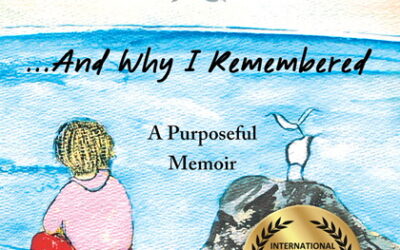Lately I have been reading Edith Wharton’s memoir, A Backward Glance, and I am most struck by the early chapters when she describes her childhood. The young Edith was a dreamy, sensitive child who loved nothing so much as rambles in the countryside, and who was devoted to her dog.
“The owning of my first dog made me into a conscious sentient person, fiercely possessive, anxiously watchful, and woke in me that long ache of pity for animals, and for all inarticulate beings, which nothing has ever stilled. How I loved that first “Foxy” of mine, how I cherished and yearned over and understood him! And how quickly he relegated all dolls and other inanimate toys to the region of my everlasting indifference!” (4)

Girls exploring the gardens of Edith Wharton’s Lenox home, The Mount.
Not surprisingly for the girl who was to grow up into the creator of the magnificent house, gardens and landscaped woods of The Mount, she had a great sensitivity to the natural world.
In her memoir she recalls “the time when the grasses first spoke to me,” a magical day in early childhood when an uncle took her “to spend a long spring day in some marshy woods near Mamaroneck, where the earth was starred with pink trailing arbutus, where pouch-like white and rosy flowers grew in a swamp, and leafless branches against the sky were netted with buds of mother-of-pearl” (4-5).
As a slightly older child, she loved long walks near her parents’ house in Newport, Rhode Island:
“Best of all I liked our weekly walks with Mr. Rutherfurd over what we called the Rocks—the rough moorland country, at that time without roads or houses, extending from the placid blue expanse of Narragansett bay to the gray rollers of the Atlantic. Every Sunday he used to collect the children of the few friends living near us and take them, with his own, for a tramp across this rugged country to the sea.
“Yet what I recall of those rambles is not so much the comradeship of the other children, or the wise and friendly talk of our guide, as my secret sensitiveness to the landscape—something in me quite incommunicable to others, that was trembling and inarticulately awake to every detail of wind-warped fern and wide-eyed briar rose, yet more profoundly alive to a unifying magic beneath the diversities of the visible scene—a power with which I was in deep and solitary communion whenever I was alone with nature. It was the same tremor that had stirred in me in the spring woods of Mamaroneck, when I heard the whisper of the arbutus and the starry choir of the dogwood; and it has never since been still.” (54)
I too was passionately attached to my first dog, and was fortunate to have had a childhood blessed with long rambles in the woods and fields around my parents’ house in upstate New York, which I wrote about in my memoir. Like young Edith Wharton, I moved back and forth between country and city, and the contrast made me understand, appreciate and long for the magic of the natural landscape.

The grandmother maple that guarded my childhood country home.
Wherever we spend our formative childhood years, that landscape becomes imprinted on us, and becomes an important element of the story of our lives. When you write about your childhood, try to take us there, into the places—both natural and built—in which you grew.
Sometimes, as with Proust’s madeleine, it’s a scent or a taste that will set off the rush of memory. Sometimes, though the exact circumstances may be hazy, the essence of a scene becomes clear in the writing, and we come to understand why our memory has preserved it—as with Wharton’s perception that her early communion with nature was connected with the dreaminess that would later fuel her storytelling.
I believe that our childhood lives on in our core, rather like the inner ring of a tree that persists, full of vitality, even as it becomes hidden by the outer layers of bark. What elements of your childhood live on in you now? How does that secret sap animate your inner life?
The only way to find out is to sit down and bring the past into the foreground, through writing. Check my Writer’s Companion for some prompts to get you going, and if you’re in the Berkshire region, consider joining me this month for my memoir workshops on Feb. 3 (Landscape of Childhood) and Feb. 17 (Looking for Love).
A last word from Edith Wharton: “I cannot remember a time when I did not want to make up stories” (33).



0 Comments